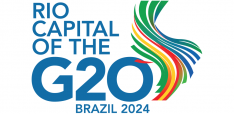Change We Might Believe In: Solutions for Avoiding Another Iraq Fiasco
Carter Page suggests that in the search for responses to the crisis in Iraq President Obama must seek to fulfil the promises his election held for the international order.
Leslie Gelb and Richard Haass are two of America’s most seasoned foreign policy thinkers and leaders, sharing uncommon insights and some closely paralleled résumés. Although they rose to prominence in different political parties as a Democrat and a Republican respectively, they both previously held senior positions at the Department of State while Presidents from their corresponding parties held office. Each subsequently went on to lead the Council on Foreign Relations as President for a decade or longer, with Haass holding that position since replacing Gelb in 2003 when the latter became President Emeritus.
Reflecting the uncertainty and open questions surrounding the current predicament in Iraq, Gelb and Haass offered starkly divergent solutions for the latest predicament in Iraq last week. Although their written works this month each contained deep insights and related observations, the cast of characters envisioned for the eventual achievement of a solution stood at the heart of this difference in perspective.
On August 12, the Financial Times printed Haass’s “War-Weary America Has to Show Its Steel in Iraq”. Although written for a London-based publication, full responsibility for the solution was squarely placed on the shoulders of Washington while only briefly alluding to the future potential of Isis posing some threat to Europe. “The US should carry out sustained attacks on Isis in both Iraq and Syria… The president said people the world over look to America to lead. He is right. Now is one of those times.”
The next day on August 13, The Daily Beast presented Gelb’s, “Here's How to Dig Out of This Stupid Sh*t U.S. Foreign Policy”. In outlining his core principles for a new strategy, one stood out as particularly sensible:
“The United States does not, in the 21st century, have the necessary power to combat the jihadis on its own; it must have partners and allies. The jihadis are a direct threat to Assad's Syria, Russia, Iran, Saudi Arabia and the other Gulf States, Jordan, and Western Europe, to name a few. Washington has to forge a military coalition to fight the jihadis in Iraq and Syria, and all of these states have to contribute to the effort in one way or another. Yes, Moscow and Tehran are troublesome today for a variety of good reasons. That said, they feel as or more threatened by the jihadis, and would be as or more willing than Washington to contribute to the jihadi defeat.”
Haass’s earlier book War of Necessity, War of Choice compared the wars against Saddam Hussein in 1991 and 2003. Although his recent FT piece only briefly refers to the latter intervention as, “an ill-advised, poorly executed war of choice”, the 2009 book provides powerful historic evidence for the strength of Gelb’s new strategy. In particular, the broader coalition that George H.W. Bush was able to piece together for Iraq War I in 1991 would stand as a core distinguishing factor which led to the endeavor’s success. As Haass pointed out 6 years ago, the same consensus-based approach also had the collateral benefit of helping to constrain the kind of overextension that would eventually be seen in the latter conflict.
Iraq: Similar dance moves, equally out of tune
A fundamental idea of terrorist protection tactics taught to military personnel is to avoid making oneself a target. One conservative American commentator has suggested that “the U.S. had to intervene in Iraq because ISIS’s goals are absolutely terrifying”. Another somewhat obvious fact is also readily apparent. Any direct attack against the Islamic State also increases the likelihood that the party which leads it will themselves become a future target. Just as senior US leaders “misrepresented the intelligence” regarding the threat prior to Iraq War 2, a similar disconnect between policy statements and intelligence may be arising again. Although rarely acknowledged by policymakers, members of the intelligence community have stated, “We assess that the group sees conflict with the U.S. as inevitable” and highlighted the Islamic State’s pronouncement that, “America, we have not turned our gaze away from you.”
In February 2014, U.S. Secretary of Homeland Security Jeh Johnson acknowledged that, “We must remain vigilant in detecting and countering all these threats,” including those related to emerging dangers in Syria and Iraq. However, equally important to detecting and countering all these threats is the avoidance of creating new ones.
In announcing the latest intervention, President Obama said, “When we have the unique capabilities to help avert a massacre, then I believe the United States of America cannot turn a blind eye.” To the contrary, several other countries have F/A-18’s – the aircraft launched from the aircraft carrier USS George H.W. Bush for the initial assault. The bombing immediately pursued did not represent unique capabilities, but rather a unique desire and inclination for military intervention.
As Obama also noted, “When the lives of American citizens are at risk, we will take action.” But underscoring the logic of Gelb’s suggested approach, there are at least 19 foreign countries with Consulates or government offices representing other foreign states in Erbil.
Change we might be able to believe in
In the weeks following his election in November 2008, then President-elect Obama outlined his “Iraq Agenda” on the Change.gov transition website. Many of the six fundamental ideas on this page from the start of the Obama Administration provide valuable hints at potential solutions to today’s challenges while some differences that have since emerged in their new approach again relate back to Gelb’s smart potential solutions. The document also included valuable reminders of core principles including cautionary signs regarding pitfalls to avoid once again.
First, he touched on principal warning signs and characteristics of the prior U.S. intervention which show striking similarities to circumstances today: “In 2002, Obama had the judgment and courage to speak out against going to war, and to warn of ‘an occupation of undetermined length, with undetermined costs, and undetermined consequences.’”
More recently on August 9, 2014, the President noted, “I’m not going to give a particular timetable,” for the current intervention. Regarding costs, he went on to mention that, “Currently, we are operating within the budget constraints that we already have. And we’ll have to evaluate what happens over time…. right now, at least, I think we are okay.” This might be similarly difficult to reconcile with the second pillar of the Administration’s 2008 policy which stated that, “We must be as careful getting out of Iraq as we were careless getting in.”
The third idea of encouraging political accommodation has become a centerpiece of the Administration’s policy in 2014. However, their earlier description indicated significant divergence from recent indications that the U.S. Government might seek to follow the example in Ukraine of determining the officeholders in Iraq: “Now is the time to press Iraq’s leaders to take responsibility for their future.”
Fourth, the idea of “Surging Diplomacy” stands as a core foundation of a viable potential solution. As defined in the initial policy, the description on the Change.gov website hinted at ideas that parallel Gelb’s partnership approach: “This effort will include all of Iraq’s neighbors - including Iran and Syria.” Although running contrary to State Department official Victoria Nuland’s statement that “Multilat is hell”, more robust involvement of a broader list of international partners including the diverse range of stakeholders worldwide can bring multiple benefits of the type that Gelb has recently described.
The fifth principle to “reserve the right to intervene militarily, with our international partners, to suppress potential genocidal violence within Iraq” is also consistent with this month’s White House announcement, although once again with the conspicuous lack of international partners. The final idea of it being, “vital that a Status of Forces Agreement (SOFA) be reached so our troops have the legal protections and immunities they need,” was similarly left unachieved.
Although challenges exist, Obama’s final years in office may stand as a last opportunity to potentially fulfill the visions cited in the 2009 Nobel Peace Prize: “Obama has as President created a new climate in international politics. Multilateral diplomacy has regained a central position, with emphasis on the role that the United Nations and other international institutions can play. Dialogue and negotiations are preferred as instruments for resolving even the most difficult international conflicts.” French President Hollande recently underscored this potential when he informed Obama that, “France would take part in any plan called for by the United Nations Security Council.”
Carter W. Page is Founder and Managing Partner of Global Energy Capital LLC, an Adjunct Associate Professor at New York University’s Center for Global Affairs and Energy Fellow at the Center for National Policy in Washington.


